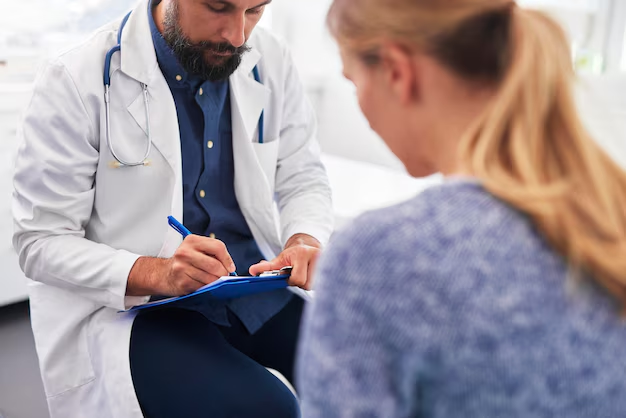Understanding Cancer: A Comprehensive Guide to Assess Your Risk
Feeling a mysterious ache or noticing an unusual bump on your body can sometimes trigger a cascade of worry. Could it be cancer? While the internet is inundated with quizzes and symptom checkers promising answers, understanding the reality of cancer, its symptoms, and how to assess your risk is crucial. This guide will delve into the nuances of recognizing potential cancer symptoms and how you can take control of your health.
The Illusion of Symptom Quizzes
Why Symptom Checkers Aren't Definitive
The internet is brimming with health quizzes that claim to tell you whether you might have cancer. While these can serve as initial checkpoints, they lack the specificity required for a reliable diagnosis. It's important to remember that many cancer symptoms overlap with those of other, less serious conditions.
Interpreting Symptoms: A Word of Caution
- General symptoms like fatigue or weight loss could signal a variety of health issues.
- Localized symptoms require careful evaluation but are not always indicative of cancer.
- Consultation with healthcare professionals remains vital for any concerning signs.
Common Cancer Symptoms to Know
Recognizing General Warning Signs
Persistent, unexplained changes in your body could warrant further investigation. Some general symptoms include:
- Unintended weight loss: Losing weight without a change in diet or exercise.
- Fatigue: Persistent tiredness that doesn’t improve with rest.
- Persistent pain: Unexplained or long-lasting pain anywhere in the body.
Specific Symptoms by Cancer Type
Breast Cancer
- New lumps, changes in size/shape, or nipple discharge.
Lung Cancer
- Chronic cough, coughing up blood, or shortness of breath.
Colorectal Cancer
- Blood in stool, changes in bowel habits, or abdominal discomfort.
Prostate Cancer
- Frequent urination, difficulty urinating, or blood in urine.
Skin Cancer
- New moles or changes in existing ones.
When to Seek Medical Advice
Act promptly if:
- Symptoms persist for weeks.
- There's a family history of cancer.
- You notice a change in any symptom’s nature, frequency, or severity.
Understanding Your Risk Factors
Non-Modifiable Risk Factors
These factors, unfortunately, cannot be changed and include:
- Genetics: Family history of cancer increases risk.
- Age: The risk increases with age.
Lifestyle and Environmental Risk Factors
Factors you can influence include:
- Diet and exercise: A healthy lifestyle may reduce risks.
- Smoking: A known risk factor for various cancers.
- Sun exposure: Prolonged exposure without protection can increase skin cancer risk.
Regular Screenings
Routine screenings are pivotal for early detection. Common screenings include:
- Mammograms for breast cancer.
- Colonoscopy for colorectal cancer.
- Pap smears for cervical cancer.
Preventive Measures and Lifestyle Choices
- Eat a balanced diet: Rich in fruits, vegetables, and whole grains.
- Regular physical activity: At least 150 minutes of moderate exercise weekly.
- Avoid tobacco: Smoking cessation reduces cancer risk significantly.
- Limit alcohol consumption: Moderation is key.
Empowering Yourself with Knowledge
The Role of Genetics and Genetic Testing
Understanding your genetic predisposition can provide clarity. Genetic testing might be considered if there’s a significant family history of cancer. Discussing genetic testing with a healthcare provider can highlight potential risks and need for regular screenings.
Building a Partnership with Healthcare Providers
- Establish open communication with your healthcare providers.
- Regular check-ups can enable early detection and treatment.
- Seek second opinions if uncertain about a diagnosis or treatment plan.
Navigate the Emotional Impact
Being informed about potential cancer risks can evoke anxiety. It's essential to address your mental health:
- Confide in family and friends to reduce stress.
- Professional counseling can support emotional well-being.
What Next? Practical Tips and Steps to Consider
- Monitor your health: Keep a diary of symptoms, if any arise.
- Be proactive: Don’t hesitate to seek medical advice if concerned.
- Educate yourself: Stay informed about updates in cancer detection and treatments.
Wrap-Up: Informativeness Breeds Preparedness
While cancer can be a daunting topic, knowledge and early action reduce uncertainty and empower individuals. Recognizing potential warning signs and understanding your risks leads to informed decisions about seeking medical consultation. Avoid relying solely on online quizzes; instead, use them as a preliminary step, then follow up with professional medical advice.
📋 Quick Summary
- Consult Trusted Sources: Always verify health information with healthcare providers.
- Know Your Symptoms: Be aware of both general and specific cancer symptoms.
- Assess Risk Factors: Understand genetic, lifestyle, and environmental contributors.
- Prioritize Screenings: Regular check-ups and appropriate tests can catch early warning signs.
- Maintain a Healthy Lifestyle: Balanced diet, regular activity, and avoiding tobacco and excessive sun exposure are crucial.
Using this information, you can take proactive steps to monitor your health without succumbing to the fear that comes with uncertainty. Remember, early detection can make all the difference. Stay informed, stay healthy, and always trust medical professionals with your concerns.

Related Articles
- Are Breast Cancer Lumps Painful
- Are Chills a Sign Of Cancer
- Are Colon Spasms a Sign Of Cancer
- Are Lytic Lesions Always Cancer
- Are Polyps Cancer
- Can a Blood Test Detect Cancer
- Can a Ct Scan Detect Cancer
- Can a Dexa Scan Show Cancer
- Can a Gastric Emptying Scan Show Cancer
- Can a Lung Biopsy Cause Cancer To Spread
